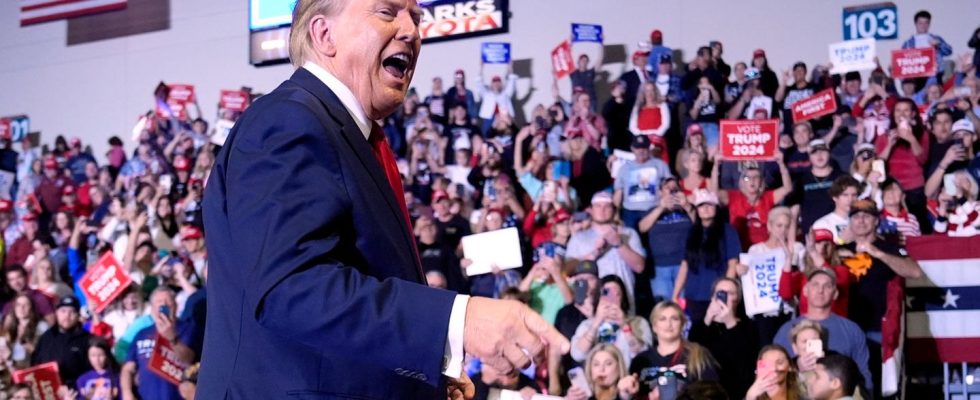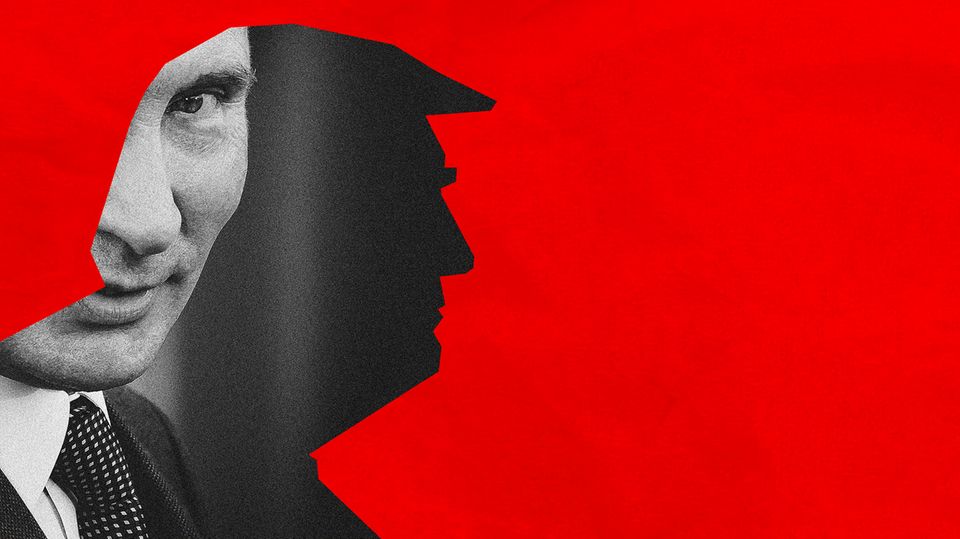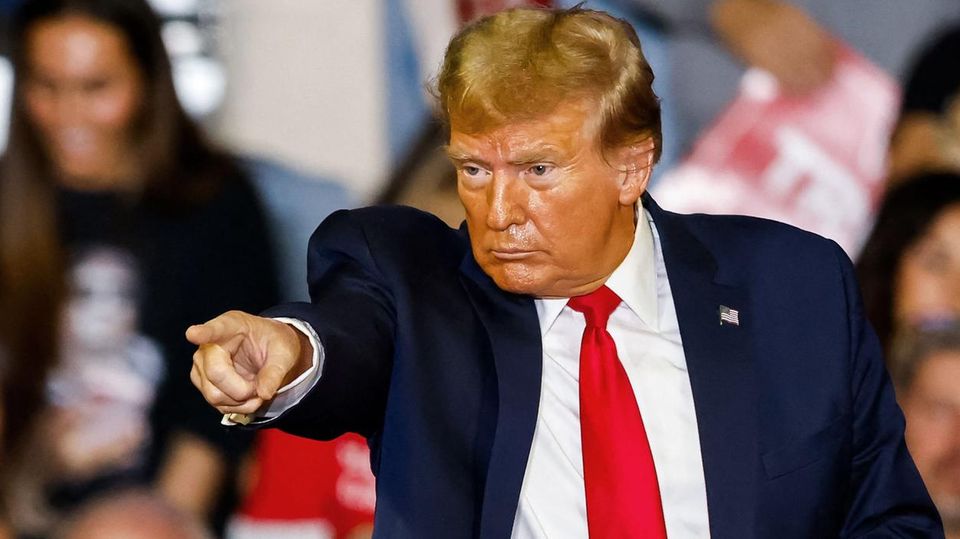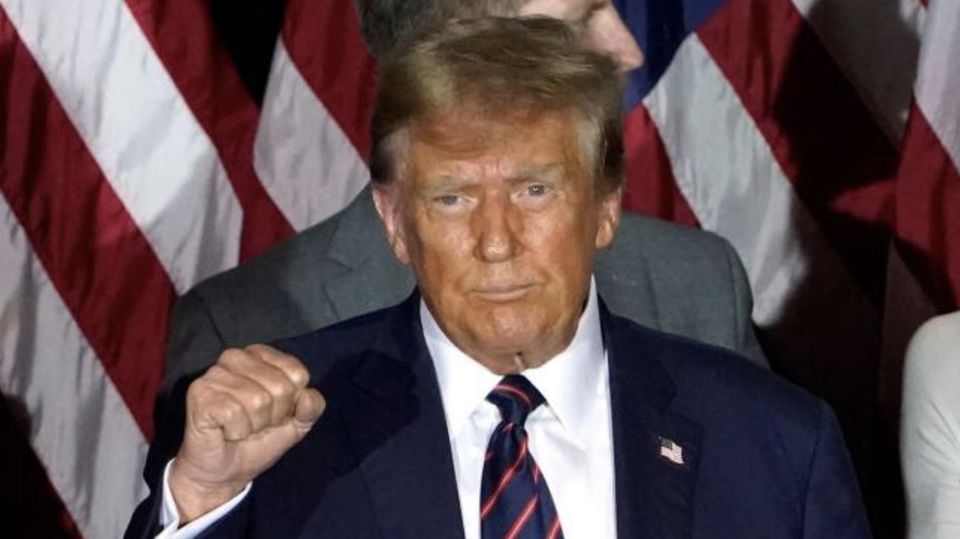Opinion
Danger of war in Europe
Maybe we Germans will still be grateful to Trump
Presidential candidate Donald Trump doesn’t care about long-term partners or alliance commitments
© Manuel Balce Ceneta / DPA
The possible next US president invites Vladimir Putin to attack NATO partners in Europe. This could be a healing shock for Germany.
“You haven’t paid? You’re in default? No, then I wouldn’t protect you. I would even encourage Russia to do whatever it wants.”
This threat from Donald Trump to abandon the European NATO partners in the event of an attack was an irresponsible provocation. A US presidential candidate who formally calls on warmonger Vladimir Putin to attack alliance territory: Until Trump’s campaign appearance in North Carolina on Saturday, something like this was hardly imaginable.
Nevertheless: Maybe we Germans in particular will be grateful to Donald Trump at some point. For ringing us home just in time, something German politicians and military usually only utter as an abstraction. Unlike some of their European counterparts.
“Look at the news from Ukraine and ask yourself: If this happens here, will I be prepared for it?” With these words, Sweden’s army chief Micael Bydén addressed citizens on television at the beginning of January.
NATO is running out of time
“We are running out of time,” added his Norwegian counterpart Eirik Kristofferson shortly afterwards. “We now have a window of one, two, maybe three years to invest even more in our defense.”
Last week it was the turn of Poland’s Defense Minister Wladyslaw Kosiniak-Kamysz. Germany’s eastern neighbor must prepare for war with Russia. This was “not just said.”
But in Germany it sounds like this so far: “One day”, possibly in five to eight years, Vladimir Putin could “attack a NATO country” (Boris Pistorius, Defense Minister). Or like this: It may be that “we may have to fight a defensive war one day and no longer have the choice whether we want to take part in an operation far away” (Carsten Breuer, Inspector General of the Bundeswehr).
The Chancellor himself remains largely silent and when he does speak out, it is usually from the safe cover of the subjunctive.
“Threat = military capabilities times hostile intentions”
Call to Kevin Ryan, retired general in the US Army, stationed in Germany for years and as defense attaché at the US embassy in Moscow. The expert on the Russian armed forces says he is asked again and again whether Russia could be so crazy as to attack a NATO country. The general answers this question with a succinct formula: “Threat = military capability times enemy intent.”
Regarding the first factor, “skills,” the situation is pretty clear. “The Russians have built the largest land army in Europe. And they continue to expand it. They spend more on armaments. Their military industry runs at full speed 24/7,” says the general. “What’s all this for? At least not for the war in Ukraine.”
Factor two, “hostile intent,” is more difficult to assess, Ryan said. But the war rhetoric from Moscow points in a clear direction. “Putin and his people say they feel existentially threatened by the West. They say the conditions that led to the invasion of Ukraine also exist elsewhere along Russia’s border,” said the US general. “Look at the map: They have taken Crimea, they are fighting in Ukraine, they control Belarus. This begs the question: What are they planning to do in the Baltics or Finland?”
From Berlin it is 800 kilometers as the crow flies to the Lithuanian capital Vilnius. 300 more to Helsinki. “Far away” is different. Ryan also spells out the “maybe one day”: If the Russian military economy continues as it is now, then Russia will be capable of such an attack “in three, five or six years.” “Even if it seems ridiculous to us today.”
There are more important topics than heat pumps and tractor diesel
It is time for us Germans – and our politicians – to adapt our priorities to this changed situation. There are more important topics than heat pumps and tractor diesel. The war is still only raging in Ukraine. But it has also long been about our freedom and our security. And the question of how we as a society prepare for the threat from Russia.
Too many of us are still lulled into a false sense of security or perhaps secretly harbor the hope that Germany will find an agreement with Russia again.
But there is no going back to the world before February 24, 2022.
If the election campaign provocation of the errant maybe-soon-again President Trump helps to make this clear to those in this country who have previously refused to admit it, then: Thank you, Mister Trump!





